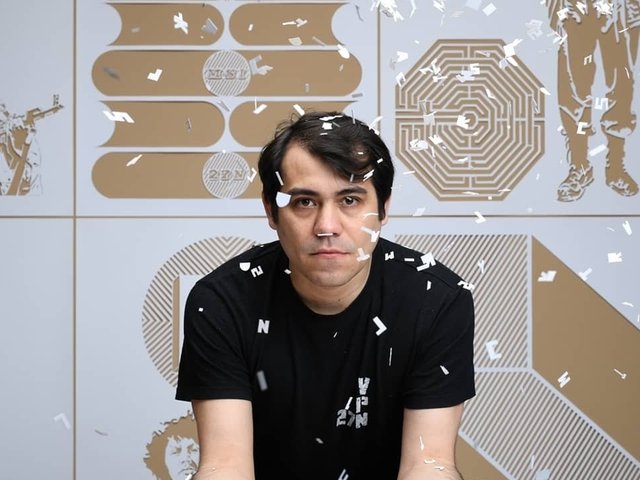Promotional video for Padilla's Shadow Courtesy: The San Isidro Movement and 27N
Fifty years ago, Herberto Padilla, one of Cuba’s most distinguished, celebrated poets made an historic speech at the Union of Artists and Writers of Cuba. Once a staunch supporter of Fidel Castro, by the late 1960s he had grown disillusioned with the the ideals of the Cuban revolution. His prize-winning 1968 book of poetry Out of the Game was critical of the Castro regime and shortly after its publication, Padilla and his book were branded “counterrevolutionary.” In March 1971 he was imprisoned for 36 days by Cuban security forces on charges of “having plotted against powers of the state” and subjected to constant, savage interrogation.
On 27 April in front of the union he publicly denounced himself, his work, his friends and even his wife. For many left-leaning writers, including Jean-Paul Sartre, Alberto Moravia and Susan Sontag—all of whom came to his defence—Padilla’s imprisonment and forced confession unveiled Castro’s true colours and changed the way liberal thinkers the world over would see the Cuban government.
Today, observing the anniversary, artists and activists from Cuba’s San Isidro International Movement and 27N are presenting Padilla’s Shadow, a choral reading of the 4,000-word statement Padilla gave in front of the Union of Artists and Writers, streamed via social media throughout the day and night and presented on the web by institutions in the United States and Europe including The Showroom in London, the Kunstlerhaus Bethanien in Berlin, the Herberger Institute in Arizona, The Perez Art Museum Miami, Franklin Furnace and Artists at Risk Connection.
“Padilla’s confession served as a harbinger of what was to follow: a period known as the Grey Five Years in which dozens of Cuban artists and writers were banished from public life,” a press release announcing the event, which was directed by Cuban American artist Coco Fusco, says. “The Cuban government's treatment of Padilla made its protocol for handling intellectuals and artists visible and has since functioned as a warning to those that seek to challenge the primacy of state authority.”
Twenty Cuban intellectuals and artists from the island and the diaspora participated in the project, which was pre-recorded and transmitted to the presenters via encrypted messaging to avoid any attempt by Cuban authorities to block participation from island residents.
The original confession was documented on video, though the complete recoding has never been made public. Fusco told The Art Newspaper she wanted the performance to maintain the look and feel of a 1970s 16mm newsreel, “to take us back to that pivotal moment in the 1970s”.
While Padilla’s story is known in Cuba and in the Unites States, the organisers say the few remember the actual words he spoke during his supposed “confession.” Many of the project’s participants, who have themselves been pressured, silenced or arrested by the Cuban government, have told Fusco that they are shocked by the text, that it has provoked bouts of anxiety, sleeplessness and nightmares.
“Padilla’s confession is a study in political abjection that is painful to witness and reproduce. But it is necessary, especially now when a new generation of Cuban artists and intellectuals are challenging the state’s authority over them. Fifty years after Padilla’s auto-da-fe, the Cuban government continues to demonise critical voices and characterise intellectuals that challenge the revolution as lackeys of foreign powers,” Fusco said in a statement.


